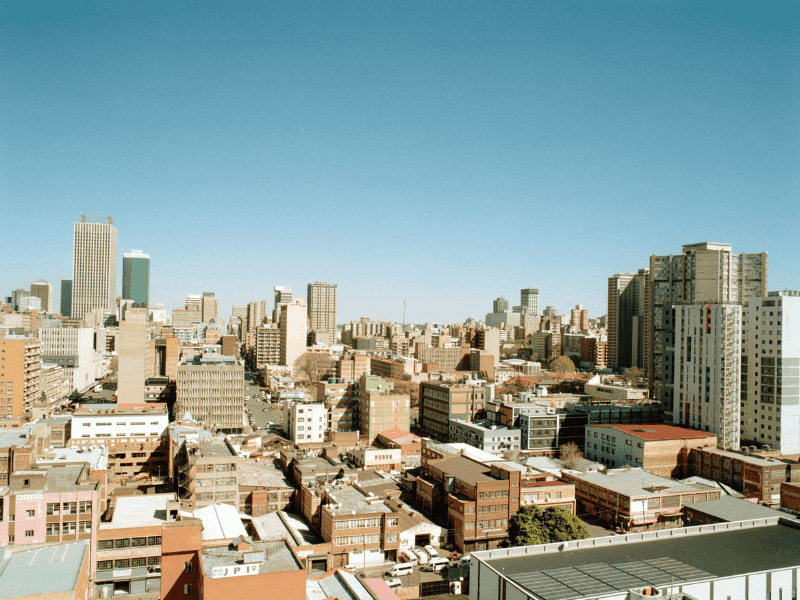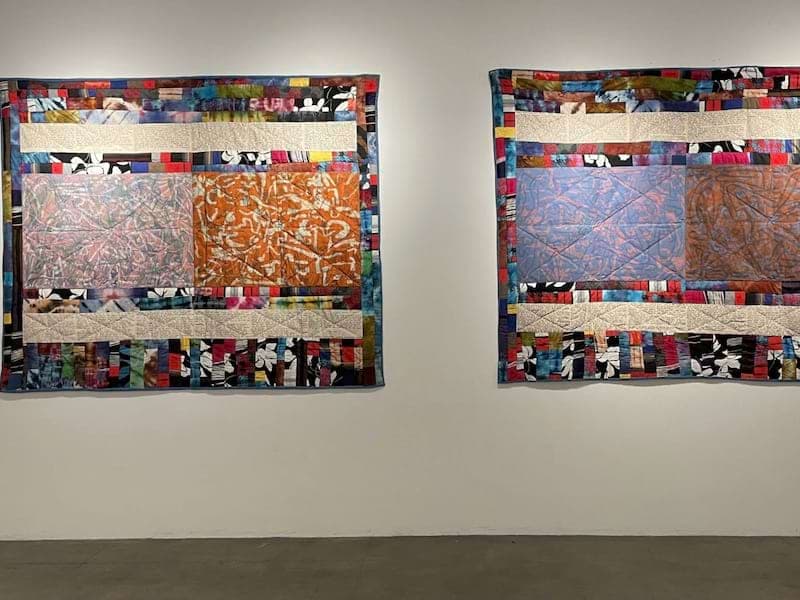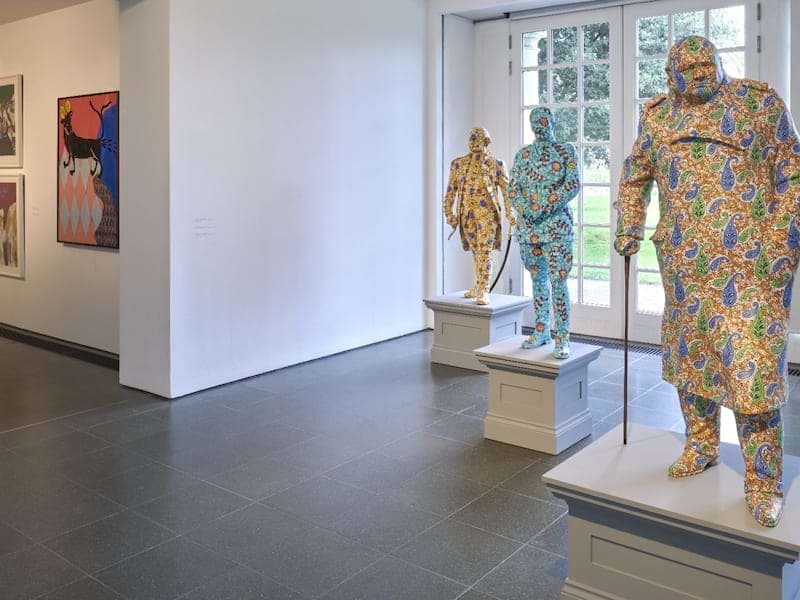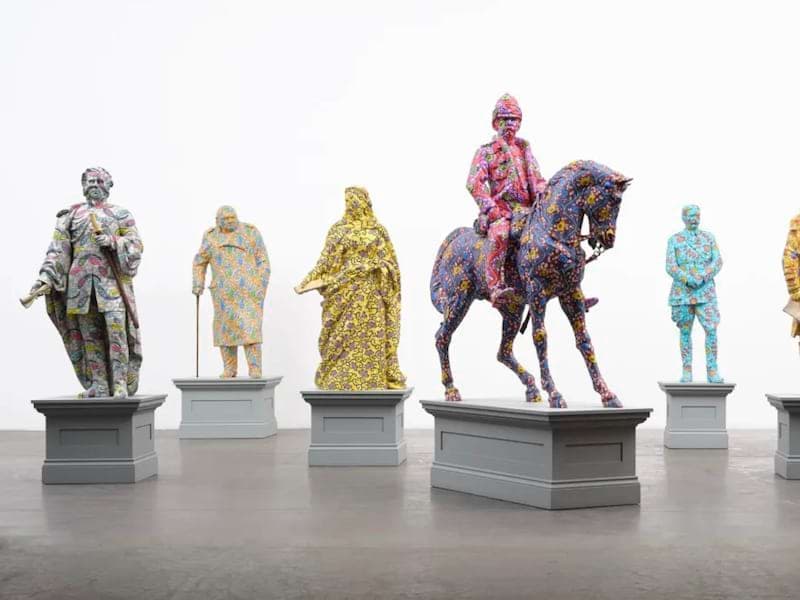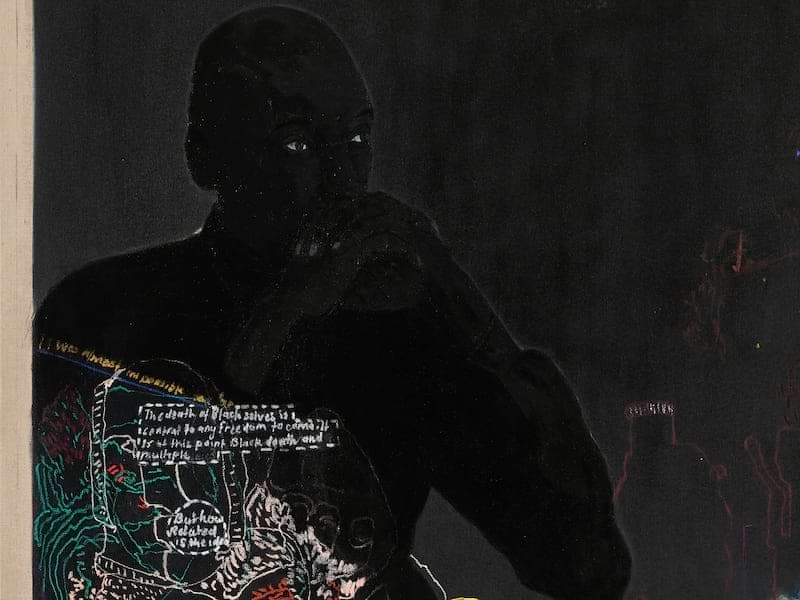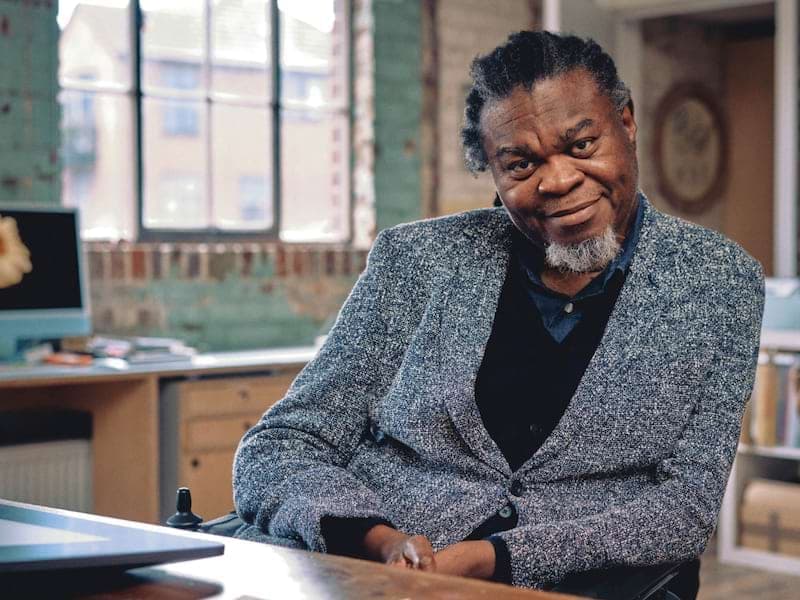
As cultural theorist Homi Bhabha reminds us in his 1994 book The Location of Culture, hybridity is as much about resistance as it is about negotiation. In Yinka Shonibare’s solo exhibition “Safiotra [Hybridités/Hybridities]” at Fondation H, what is being resisted is clear: oppressive singular narratives and colonial thinking. But I find myself grappling with what, if anything, is being negotiated. This sense of uncertainty and ambiguity may well be the point—that a negotiation of the hybrid is too elusive to pin down.
The survey, spanning nearly two decades of the artist’s interdisciplinary practice, is significant for many reasons. To begin, it is the first time an exhibition of this scale by Shonibare has been shown in Madagascar, an occasion that seems apt since Shonibare’s practice is, at its core, about hybridity—the merging of ideas, materials, and philosophies within the layered histories of postcolonial realities. Madagascar, too, embodies this unstable state of being, including in ways the country has yet to fully confront. The African influence, complicated by French colonization from 1896 to 1960, intersects with Asian cultural and ancestral ties. “Safiotra,” then, offers a much-awaited moment to reflect on boundary-crossing dialogues between the great island and the great continent.
Related Press
See AllAfrican art finds a global stage in Johannesburg, featuring Goodman Gallery
Art Basel05 Sep 2025Art Basel Opens Amid Market Fears: What Sold on VIP Day
Artnet20 Jun 2024Yinka Shonibare CBE’s timely solo exhibition at the Serpentine makes the invisible visible
Nataal20 Jun 2024Artist Yinka Shonibare has Brought Winston Churchill Down to Size
iNews20 Jun 2024Art Basel Big-ticket Sales Banish ‘doom porn’ Warnings, Featuring Goodman Gallery
Financial Times19 Jun 2024Yinka Shonibare: ‘The argument that things are safer at the British Museum is a little bit shaky now’
The Standard03 Apr 2024
